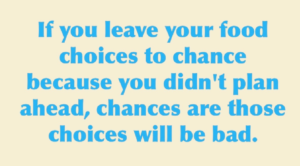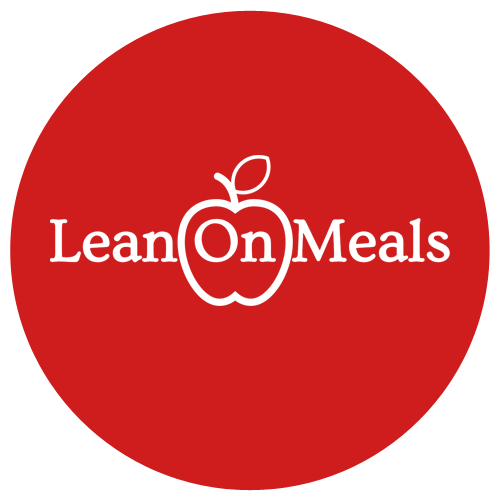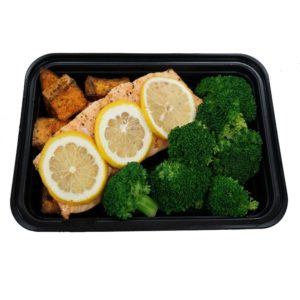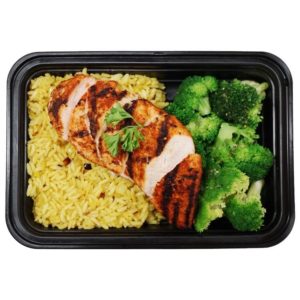Biggest Mistakes People Make When Trying To Lose Weight

Despite it being a common concern for many people, I don’t often write about quick fixes for weight loss. This is because there’s really no one right answer, nor is there a simple answer (sorry to break it to you). Carrying excess weight or difficulties shedding excess body fat is multifaceted, and is almost always due to underlying nutritional imbalances in the body. Uncovering physiological root issues is my approach, and doing so will foster weight loss, improved energy, sleep, reduced cravings, increased immunity, and most any other health or fitness goal you’re trying to reach. Lasting change will not and cannot occur while imbalances in the body are left unchecked to sabotage your efforts.
That said, there are common mistakes I see again and again in those trying to shed body fat. Many of these mistakes I used to make myself, so I sincerely feel your frustration at your hard efforts you think should be working, but just do not! Aside from what you eat, how and when you eat also matters a great deal.
TOP 15 NUTRITION MISTAKES:
1. Skipping breakfast
2. Not eating regularly throughout the day
3. Cutting carbs
4. Eating too little protein
5. Going to bed hungry
6. Dieting/restricting total calories
7. Failing to refuel after a workout
8. Too many treats
9. Too much alcohol
10. Not enough water consumption
11. Drinking too much coffee
12. Not eating enough EFAs
13. Using artificial chemical sweeteners
14. Overdoing the protein bars or Smoothies
15. Failing to Prepare
1) Always eat breakfast within 30-60 minutes of being awake. It kick-starts your metabolism, and always include protein in breakfast. A trainer from the winter club (someone who otherwise knows fitness and general nutrition) recently changed only this in her otherwise very healthy clean lifestyle. After almost 5 years of struggling with about 5-6 extra lbs on the scale, she reported she was down 4 lbs in the first couple weeks!
2) Eat 6x each day, about every 2-3 hours. 1. Breakfast 2. Morning snack 3. Lunch 4. Afternoon snack 5. Afternoon snack #2 or Dinner (depending on how early you eat dinner) 6. Dinner or evening snack. An abundance of research exists that shows how fueling the body with smaller portions throughout the day promotes blood sugar stability, hormonal balance, and increased metabolic rate – all of which contributes to getting and staying lean.
3) Carbohydrates have been demonized in the media, but in truth they are the most powerful of nutrients in affecting your energy levels, and therefore your metabolism and ability to stay lean. Tolerance to amounts and types of carbohydrates will vary depending on an individual’s unique biochemistry and digestive health, but for most people, good carbs should be a mainstay in the diet.
Their bad reputation comes from the detriments of eating excessive bad carbs; refined carbohydrates void of any health-supportive nutrients. Choosing the right kind of carbohydrate is essential. The key thing to keep in mind is that carbohydrates in natural, fibrous foods like fruits, vegetables, starchy vegetables like potatoes, yams and winter squash, and whole grains are infinitely better for you than refined, sugar-laden carbohydrates.
We do not have to give up our favorite treats forever, and we don’t need to stay home and never socialize. But we can adapt clean living into 90% of our lives with truly profound benefits. We will not get fat or unhealthy by having ice cream, pizza or wine once a week or by missing a workout once or twice a week. Just as we won’t get lean and fit by eating clean once a week or exercising 1-2 times a week. The key is consistency, desire and yes – a good measure of discipline.
4) Increase your protein intake. Try to include a little almost every time you eat! Protein helps to metabolize the carbohydrates you eat, resulting in less spikes in blood sugars, which leads to a more steady calorie burn and less cravings due to low blood sugar levels. Note: cravings for high sugar or starchy foods is most always a result of low blood sugar levels. When you eat sugar/processed starch, your blood sugar levels spike. Your body’s response to that is to send insulin throughout to bring them down – often resulting in too much and then the blood levels become too low… which then signals the brain to cause hunger pains or cravings so that we will eat more of it. It’s a vicious cycle. The solution: eat less of the high sugar starches in the first place, and eat protein with each meal/snack. 2-3 of these proteins should be real food: chicken or other lean meat, Greek yogurt, and/or eggs. The other 2-3 servings of protein can be from a quality protein powder (sweetened with stevia and one which is preferably organic and contains little fillers) or a clean protein bar – no chocolate covered ones! Elevate Me bars and Simply Bars are good options, or have fun in the kitchen and bake your own protein bars or muffins! See www.mipstick.com or our Pinterest folders for lots of great recipes.
5) Never go to bed starving. Your body repairs and builds muscle tissue while you sleep. If you have nothing in the tank to assist in this metabolic process, you are sabotaging your lean muscle growth potential – and remember more lean muscle means a higher metabolism. The right thing to eat before bed is protein, as this is what you body needs to help it build muscle while you sleep. The wrong thing to eat before bed is carbohydrates, as they are a quick access source of energy that you do not need while sleeping. Fats are a longer lasting energy source, so would also be a good choice in the evening. Good evening snack: Greek yogurt with a small handful of almonds (10-20), a cup of cottage cheese, or a small protein shake.
6) Don’t diet! Restricting calories kills your metabolism. A barrage of diet media suggesting we must starve to remain lean and healthy has programmed us. This couldn’t be further from the truth. Many factors contribute to how many total daily calories each of us needs to thrive (ie: activity level, age, gender, our own individual biochemistry), but one thing science agrees on is the many detriments to overall wellness if our brains, organs, and tissues do not get adequate nourishment. The body simply will not function optimally if energy intake (food intake) is chronically lower than energy output.
I’ve enjoyed many a people’s amazement when they (sometimes fearfully) begin to eat more food than they ever have, more often throughout the day, and watch the pounds and inches come off. This applies to clean, nourishing food of course! We’ve all heard the analogy of a fire kept ablaze with kindling or logs added to it regularly, rather than letting it burn right down and then trying to get it going again. Yes, the same is true of feeding our bodies and our metabolism.
7) After a workout, have your next scheduled meal or snack within 30 minutes. Despite the ample research, I used to refuse to put the same calories I’d just burned off, right back into my body after a workout. Now I understand, and have experienced firsthand, the importance of maintaining blood sugar stability to metabolism and weight loss. The body utilizes its stores of glucose (energy) during intense physical exertion. This causes our blood sugar levels to drop, which if not brought back into balance in a timely manner, can lead to cravings, reduced energy production, hormonal fluctuations, and decreased metabolic rate. Furthermore, when you replace the glucose and other nutrients back into the bloodstream as soon as possible after training, they are sopped up by very receptive muscle tissue and utilized immediately to help the recovery process; thereby reducing muscle fatigue and soreness. It also gives the body what it needs to begin the repair and building of muscle tissue, which ultimately will foster increased metabolic rate and increased fat burning.
8) Limit treats to 2-3 occasions per week – NOT 2-3 days per week (whether those treats are sweets, chocolate, candy, fast food, pizza, wings, nachos, salty: chips or salted nuts, etc). Don’t write off an entire day just because you had a treat, the day is not ruined!
9) Alcohol should be limited to 1-2x per week (if at all), 1-2 drinks each time (if alcohol is part of your social life). Alcohol is a carbohydrate, but it’s converted into glucose differently than other carbs. Instead, it’s converted into fatty acids and thus is likely to be stored as body fat. Additionally, alcohol reduces your inhibitions, resulting in more likelihood of making poor food choices that sabotage your weight loss efforts.
10) Water can help you loose weight & burn fat. Sometimes we think we are hungry, when actually we are thirsty. Our body just starts turning on all the alarms when we ignore it. Staying hydrated can serve as an appetite suppressant and help with weight loss. As for the physiology of it, here’s how it works. Your kidneys depend on water to do their job of filtering out waste products from the body. If you’re slightly dehydrated, the liver steps in to help the kidneys in this process; thereby reducing its role in mobilizing stored fat for energy. The result: fat loss is compromised.
11) Excessive coffee consumption can halt weight loss. In an effort to stave off hunger, I see people chugging the coffee to curb those afternoon hunger signals. Firstly, mid to late afternoon cravings are a textbook indicator of blood sugar instability set in motion by not fueling the body adequately from the point of awaking. Eating breakfast and fuelling every few hours should help reduce those afternoon cravings. But if you’re hungry, eat! Coffee is a stimulant that stresses the body when consumed in excess, leading to more hormonal fluctuations and metabolic imbalances.
12) Researchers are studying the influence of omega-3 fats on fat burning. Studies on rats have shown that omega-3 fat reduces both the number of fat cells and the fat cell size. Other data on humans show omega-3s contribute to improved body weight control and abdominal fat control. Other Canadian studies suggests omega 3 fatty-acids in fish (salmon, cod, halibut) improves whole-body insulin sensitivity for glucose, increases the circulating hormone calcitonin level, which plays a role in helping to control weight gain, and enhances fat loss. Healthy fats (avocado, coconut and olive oils, fish, nuts and seeds) also have anti-inflammatory properties that play vital roles in the body, including supporting hormonal balance; which is key is weight management.
13) Get rid of the artificial sweeteners. In our efforts to cut sugar and calories, many turn to artificial sweeteners. This directly affects metabolism and halts weight loss. These toxic chemicals, just like everything our bodies are exposed to, must be processed in the liver. The liver plays a crucial role in several important functions in the body; including regulating hormonal balance, repairing and building new muscle, metabolizing all our foods and regulating fat burning and storage. For more information, see http://www.mipstick.com/chemicals-impede-goals/
14) You’re probably going to hate me for this one, but let’s be real here – most “protein bars” are really just sugar and/or artificial ingredient laden snack bars with some protein added. I see it over and over again, those who think they are making good choices because marketing fluff has deceived us. First tip-off: it’s chocolate covered (sorry again!). Secondly, read the label. Are there a number of things you can’t pronounce? Clean commercially prepared snack bars include the Elevate Me bar, Lara Bar or Simply Bar. Some of these may have a similar number of total calories or sugar grams, but it is all from real food (fruit, nuts) instead of refined sugar and/or chemicals. For more information on the many ways sugar and chemicals will impede your weight loss goals, see mipstick.com.
Smoothies are another example of something good gone bad. Smoothies are a great way to have a balanced, nourishing meal or snack on-the-run. However, all too often we pack them so full that the total calories are far more than if we’d sat down to a three-course meal. Mipstick’s Holistic Nutrition Guide eBook outlines smoothie guidelines and lots of recipe ideas for smoothie options.
15)

Even the most devote and conscientious clean eater will reach for a handful of potato chips, chocolate cookies, or a slice of pizza if hunger and low blood sugars has overtaken logic. It happens to all of us! Having food prepared and available in advance is an absolute must to support weight loss. Just as running shoes are necessary for going for a run, eating properly will not happen if clean, nourishing food is not available to you.
There you have it – the top mistakes I see in those struggling with weight loss. Knowledge, preparation, a good measure of discipline, and addressing any underlying nutritional imbalances is important. Most of us have probably heard all of these things before. What we may not fully realize, however, is just how BIG of a difference it makes when we actually DO them – consistently together. Each of the above in itself is not magic, but the accumulative effect of these healthy habits is like nutritional magic!
Order your Meals Online at : www.leanonmeals.ca
By Yvette Styner, CHN
Certified Holistic Nutritionist ™
Elite Pro Natural Figure Athlete
For more information or help with your health goals, visit Yvette at www.mipstick.com











